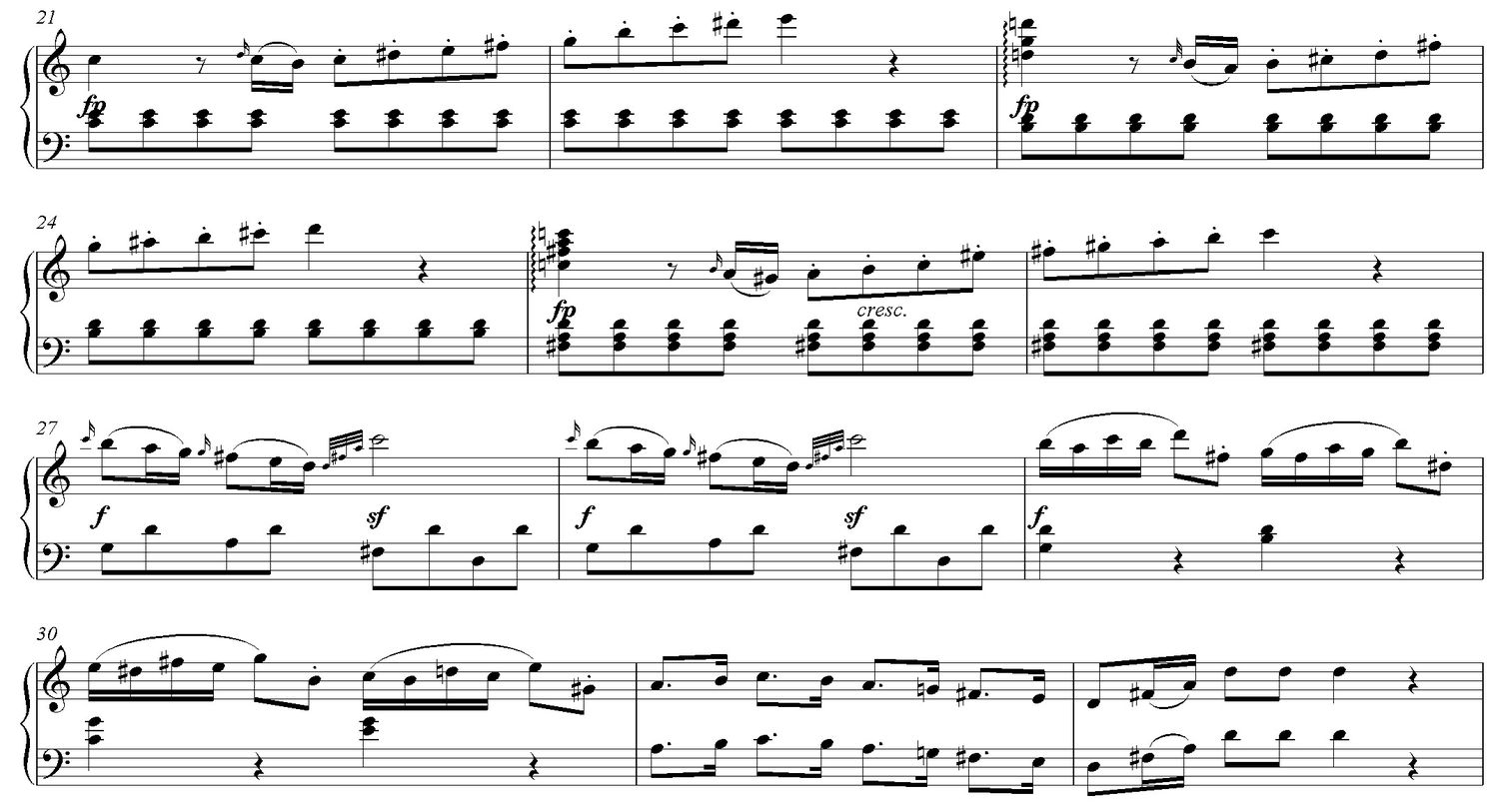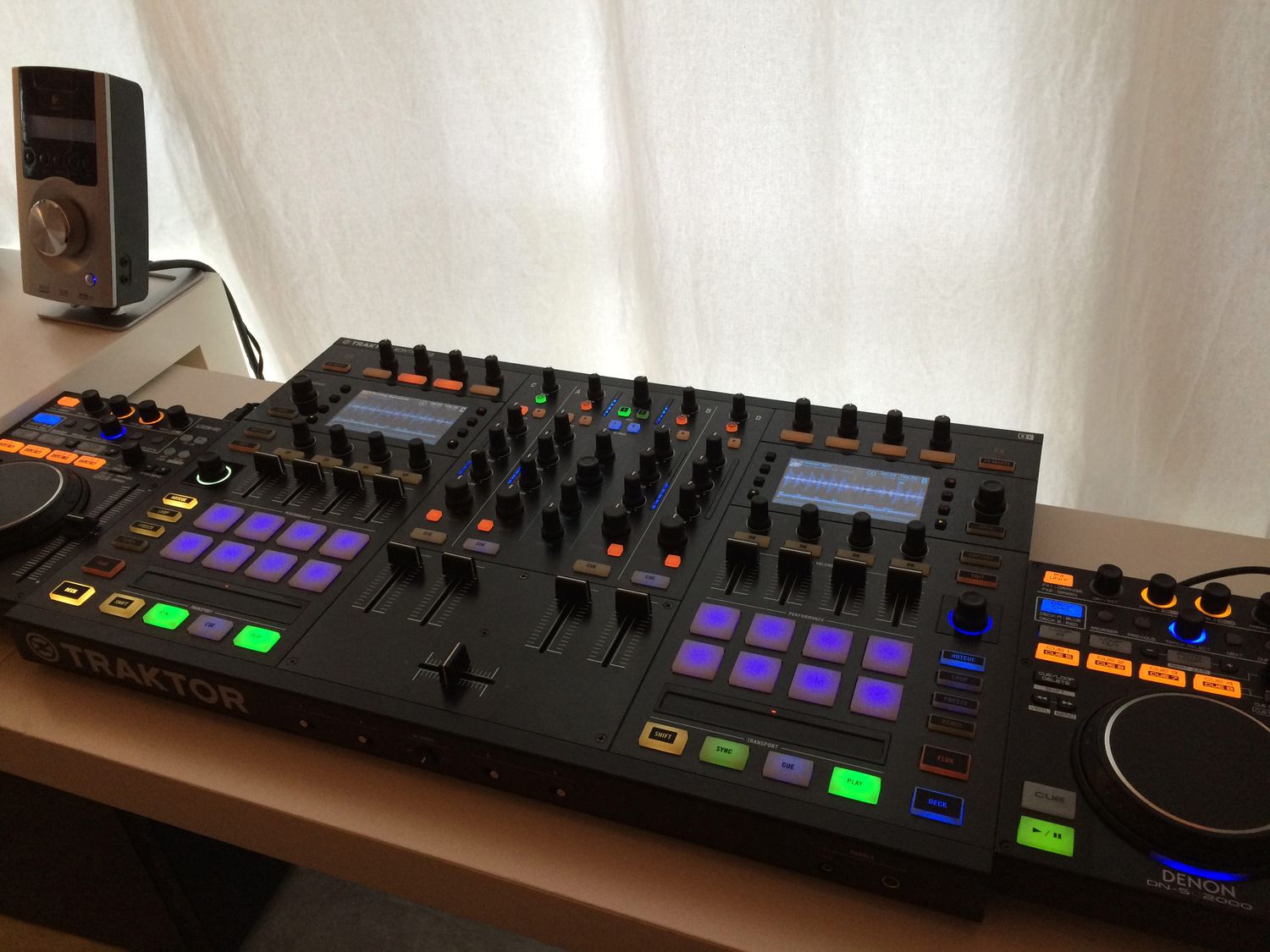Home>Production & Technology>Music Theory>How Hard Is Grade 8 Music Theory


Music Theory
How Hard Is Grade 8 Music Theory
Published: January 29, 2024
Discover how challenging Grade 8 Music Theory can be and find valuable resources to help you master the intricacies of Music Theory.
(Many of the links in this article redirect to a specific reviewed product. Your purchase of these products through affiliate links helps to generate commission for AudioLover.com, at no extra cost. Learn more)
Table of Contents
Introduction
Music theory is the backbone of understanding and appreciating the intricacies of music. It provides a framework for analyzing, composing, and performing music. While beginners typically start with the basics of music theory, such as reading notes and rhythms, more advanced musicians may choose to pursue higher levels of theory, such as Grade 8 Music Theory.
Grade 8 Music Theory, often considered an advanced level of musical knowledge, is a comprehensive exam that covers a wide range of topics. It delves into complex concepts such as harmony, counterpoint, figured bass, and transposition, amongst others. Aspiring musicians who aim to become music educators, composers, or performers can benefit greatly from a strong understanding of Grade 8 Music Theory.
While some may find the idea of delving into the intricacies of Grade 8 Music Theory daunting, it is important to remember that it is a journey of growth and discovery. With the right approach and dedication, anyone can develop a deep understanding of music theory at this level.
In this article, we will explore the basics of Grade 8 Music Theory, delve into notable concepts, highlight challenging areas, and provide tips for studying and preparing for the Grade 8 Music Theory exam. Whether you are a musician looking to expand your knowledge or a student aiming to ace the exam, this guide will help you navigate the world of Grade 8 Music Theory with confidence and enthusiasm.
Basics of Grade 8 Music Theory
Grade 8 Music Theory builds upon the foundational knowledge acquired in earlier grades. It covers a wide range of topics to deepen understanding and provide a more holistic view of music. Here are some of the key areas covered in Grade 8 Music Theory:
- Harmony: Harmony explores the vertical aspect of music, focusing on how chords and chord progressions are constructed and analyzed. In Grade 8, you will study advanced chord structures, including extended and altered chords, and their function within a piece.
- Counterpoint: Counterpoint is the art of combining multiple melodic lines to create a harmonically pleasing composition. In Grade 8, you will delve into contrapuntal techniques such as imitation, canon, and fugue, and learn to compose intricate musical lines that interact harmoniously.
- Figured Bass: Figured Bass is a system of shorthand notation used to indicate the harmony in a piece of music. In Grade 8, you will learn to interpret and realize figured bass symbols, understanding how they influence the overall harmonic structure of a composition.
- Transposition: Transposition involves shifting a musical piece to a different key while maintaining its structure and relationships between the notes. In Grade 8, you will explore transposing melodies, chords, and entire compositions, gaining a deeper understanding of key relationships and musical flexibility.
- Musical Forms: Grade 8 Music Theory introduces more complex musical forms such as sonata, rondo, and variation. You will learn to identify the characteristics of these forms and analyze how they contribute to the overall structure and emotional journey of a piece.
By mastering these foundational concepts and techniques in Grade 8 Music Theory, you will gain a deeper understanding of the intricacies of music composition, performance, and analysis. The knowledge gained in these areas can set you apart as a well-rounded musician and open doors to opportunities in various musical pursuits.
Notable Concepts in Grade 8 Music Theory
Grade 8 Music Theory covers a variety of complex and important concepts that are essential for understanding and analyzing music at an advanced level. Here are some notable concepts you will encounter:
- Polyphony: Polyphony refers to the simultaneous sounding of multiple independent melodic lines. In Grade 8, you will study complex polyphonic compositions and learn to identify and analyze the interactions between the different voices.
- Modulation: Modulation is the process of changing from one key to another within a musical piece. Grade 8 Music Theory explores advanced modulation techniques, including pivot chords and modulation by common chord, providing a deeper understanding of tonal relationships and key changes.
- Advanced Harmonic Progressions: Building upon the basic understanding of chords and progressions, Grade 8 delves into more advanced harmonic progressions such as modal mixture, secondary dominants, and chromatic harmony. These concepts add complexity and richness to musical compositions.
- Ornamentation: Ornamentation refers to the embellishments and decorative elements added to a musical line to enhance expression and artistry. Grade 8 Music Theory explores various ornamentation techniques, such as trills, mordents, and turns, and how they can be applied to different musical styles and periods.
- Analyzing Musical Score: Grade 8 requires a deep understanding of how to analyze a musical score. You will learn to identify key signatures, time signatures, and key musical elements such as motifs, themes, and various markings found in the sheet music.
These concepts will challenge and stretch your understanding of music theory, enabling you to analyze and appreciate music at a higher level. They provide the tools necessary to dissect complex compositions and interpret the intentions of the composer.
By immersing yourself in these notable concepts, you will develop a more nuanced understanding of the inner workings of music, which will ultimately enhance your ability to perform, compose, and appreciate music at a grade 8 level.
Challenging Areas in Grade 8 Music Theory
Grade 8 Music Theory undoubtedly presents its fair share of challenges. As you delve deeper into the intricacies of music theory, certain topics may prove more demanding than others. Here are some of the challenging areas you may encounter in Grade 8:
- Advanced Harmony Analysis: Analyzing complex harmonic progressions and identifying chord functions can be challenging. Understanding how chords function within a key and how they contribute to the overall musical structure requires careful study and practice.
- Counterpoint Composition: Writing contrapuntal music involves meticulously following strict rules while maintaining melodic and harmonic integrity. Achieving balance and coherence in multiple melodic lines can be a complex task that requires both technical expertise and artistic intuition.
- Musical Forms: Grade 8 introduces more complex musical forms such as sonatas and variations. Analyzing these forms, identifying their structural elements, and understanding their impact on the overall narrative of a piece can be challenging and require focused study and listening.
- Figured Bass Realization: Deciphering and realizing figured bass symbols accurately can be quite challenging. It requires a solid understanding of chord inversions, voice-leading principles, and harmonic progressions to create harmonically sound compositions based on the given figures.
- Transposition: Transposing music from one key to another can be daunting, especially when dealing with complex compositions. Maintaining the integrity of the composition while adjusting it to a different tonal center requires careful attention to detail and a strong understanding of key relationships.
These challenging areas in Grade 8 Music Theory highlight the depth and complexity of the subject matter. However, with dedication, consistent practice, and the guidance of a knowledgeable teacher or mentor, these challenges can be overcome, leading to a deeper level of understanding and proficiency in music theory.
It is important to approach these challenging areas with patience and perseverance. Break down the concepts, seek clarification when needed, and engage in regular practice to strengthen your skills. Embrace the challenges as opportunities for growth and celebrate the progress you make along the way.
Tips for Studying Grade 8 Music Theory
Preparing for the Grade 8 Music Theory exam requires dedication, focused study, and a well-structured approach. Here are some practical tips to help you effectively study and succeed in Grade 8 Music Theory:
By following these tips, you can effectively study for Grade 8 Music Theory, strengthen your understanding of advanced concepts, and increase your chances of success in the exam. Remember to approach your studies with patience, discipline, and a genuine love for music, and you will find yourself achieving your goals in no time.
Conclusion
Grade 8 Music Theory is a significant milestone in any musician’s journey. It represents a deep understanding of the complexities of music and the ability to analyze and appreciate it at an advanced level. While it may seem challenging at first, with the right approach, dedication, and practice, you can conquer Grade 8 Music Theory and unlock a world of musical possibilities.
Throughout this article, we have explored the basics of Grade 8 Music Theory, notable concepts, challenging areas, and provided valuable tips for studying and preparing for the exam. Remember that studying music theory is not just about passing an exam; it is about enriching your understanding and enhancing your musical expression.
As you embark on your journey to master Grade 8 Music Theory, embrace the challenges, seek guidance from experienced teachers or mentors, and make use of online resources and study materials. Regular practice, active listening, and practical application of theoretical concepts will reinforce your knowledge and make it more intuitive.
Music theory is a lifelong learning process, and Grade 8 is just one step on this journey. Continuously strive to expand your musical horizons, explore different musical styles and genres, and keep refining your skills and knowledge. The more you immerse yourself in music theory, the deeper your understanding will become, and the more confidently you will be able to navigate the complex world of music.
Remember, music theory is not meant to be restrictive; it is a tool that empowers you to express yourself and connect with the language of music. Let your knowledge of Grade 8 Music Theory guide you as you compose, perform, and appreciate music with greater depth and insight.
So, embrace the challenge, embrace the beauty of music theory, and let Grade 8 be a stepping stone to a lifelong love affair with the art of music.











